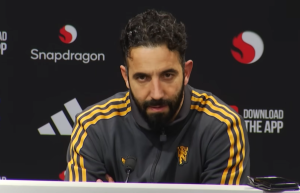Representatives of the Colombian government and the left-wing Revolutionary Armed Army of Colombia (FARC) have requested that the United Nations and the Community of Latin American and Caribbean States monitor their bilateral truce as the country's peace talks draw to an end.
"We have decided to ask the U.N. Security Council to create (a mission) of unarmed observers for a period of 12 months," the two sides said in a joint statement that was read in Havana, Cuba, where the peace talks have been taking place over the past three years.
After recent agreements on rural reform, political participation, drug trafficking and victims, the final point on the agenda is "End of Conflict," or reaching a decisive bilateral ceasefire, according to Colombia Reports. Due to ongoing mutual distrust, the administration of President Juan Manuel Santos and the FARC leadership are asking for this "tri-partisan mechanism for the monitoring and verification of the deal regarding the bilateral and definitive ceasefire and cessation of violence, and disarmament," the joint statement explained.
An important part of the monitoring mechanism will be resolving disputes that arise from the demobilization of more than 7,000 FARC rebel fighters, the Guardian reports. The method of disarmament still remains to be negotiated.
Some consider this agreement to be an important sign that the projected March 23 deadline for concluding the peace talks is within reach. "Today's announcement isn't only the start of an international process, it's the unequivocal demonstration of our desire to end confrontation," said Humberto de la Calle, the government's lead negotiator, according to the Guardian. "We're not thinking of masking a fictitious ceasefire, just to get things done."
FARC negotiator Ivan Marquez called the new agreement a "strong signal," also stating that "Peace in Colombia is possible," according to Reuters.
More than 220,000 people have been killed and millions displaced through the violent conflict between the FARC and the Colombian military, which began in 1964. It is the longest-running armed conflict in the Western Hemisphere, according to the BBC.
© 2025 HNGN, All rights reserved. Do not reproduce without permission.








